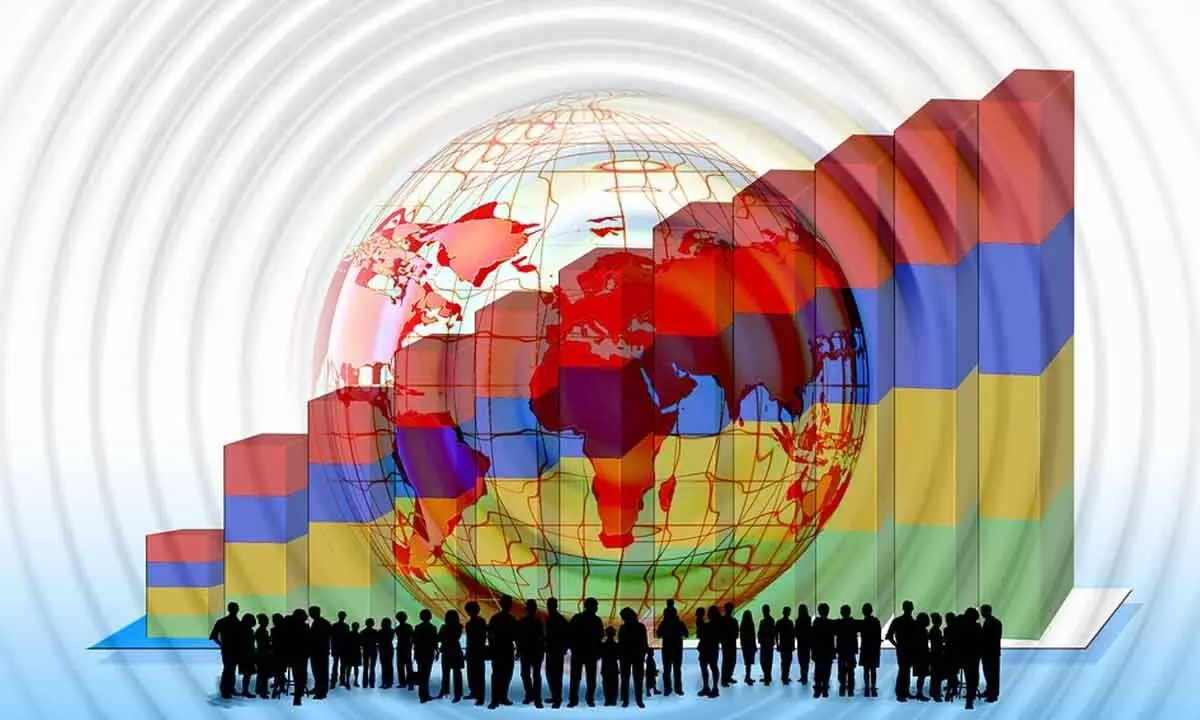From 2 bn in 1925 to 8 bn in 2022, how far will global population rise?
The UN's latest projections, released earlier this year, suggest the world will house about 9.7 bn humans in 2050
image for illustrative purpose

We never know precisely how many of us are alive at any one time, but United Nations estimated that on November 15 we world population reached 8 billion. Eight billion! It's a number too big to imagine but think of it this way: In the time it takes you to read this paragraph, the world's population grew by around 20 people.
While the Earth's population is growing quickly, the growth rate is starting to slow down. Eventually, it will start falling and our societies will shrink. Humanity is changing day by day in ways we can't perceive over short periods, but in ways that will reshape our world over the coming century.
We're getting older and older, which means there are fewer people able to work to support more people who can't. Cities are expanding, chewing up arable farmland as they go. We're seeing a major shake-up of the huge population centres of the world.
We've gone through a pretty extraordinary period in the 20th century into the 21st century, where we've gone from demographic regimes in which there are lots of children and people were dying younger to a period of really rapid growth. We now need to grapple with the consequences - and the opportunities.
But to understand what it all means we need to start at the beginning. We've come a long way, fast Homo sapiens have roamed the Earth for roughly 300,000 years, give or take (no one left a diary back then).
"We evolved to have big brains and long legs, but our population grew relatively slowly at first. There were perhaps 230 million of us on Earth at around the time of Cleopatra's death, as the ancient Egyptian civilisation came to an end."
The population had more than doubled by the Renaissance in 1500 and doubled again by 1805 when the ancient Egyptian civilisation was being rediscovered with the help of the Rosetta Stone.
These are all pretty rough estimates — we didn't have comprehensive censuses in the Middle Ages – but the human population has been on a slow burn, until recent centuries, when it has boomed. [Estimated global population from 10,000 BCE to 2021]
The 2 billion mark was reached just before the Great Depression in 1925, and it took just 35 years from there to get to the third billion. Since then, the population has been rising by another billion every 10 to 15 years. The UN's latest projections, released earlier this year, suggest the world will house about 9.7 billion humans in 2050.
Under its most likely scenario, the UN projects the world population will reach about 10.4 billion in the 2080s.
From there, it's set to plateau for a couple of decades, before falling around the turn of the 22nd century. But the range of reasonable possibilities in 2100 is considerably wider, between 8.9 and 12.4 billion.
Some parts of the world are facing a different problem. There are no nations in Africa on the population decline.
In fact, Africa is one of the fastest-growing places on Earth right now. Just eight countries are projected to be responsible for more than half the world's population increase by 2050.
One of them is India, which is set to overtake China as the most populous country in the world next year. Pakistan and the Philippines are also on the list, and the remaining five are all in Africa: Nigeria, Tanzania, Ethiopia, the Democratic Republic of the Congo and Egypt. [These eight countries will contribute more than half the world's population increase to 2050]
Sub-Saharan Africa, in particular, is growing fast. It is projected to contain about a third of the world's population at the end of the century, although there is a lot of uncertainty about projections that far out. [Africa is projected to have 38 per cent of the world's population in 2100]
That's a lot of extra people in a region of the world with some of the highest levels of extreme poverty. Ensuring food production keeps up with the twin pressures of a growing population and the effects of climate change is the focus of a lot of development attention.
"There's no root-cause driver, but there are all of these interconnecting forces that are reinforcing one another and creating these gnarly knots that are making life incredibly difficult."
"You have climate change in a place like Somalia … in a place that's had five years of drought. You also have a country that's gone through, like all of us, two years of economic lockdown and shutdowns … and this country is in conflict."

